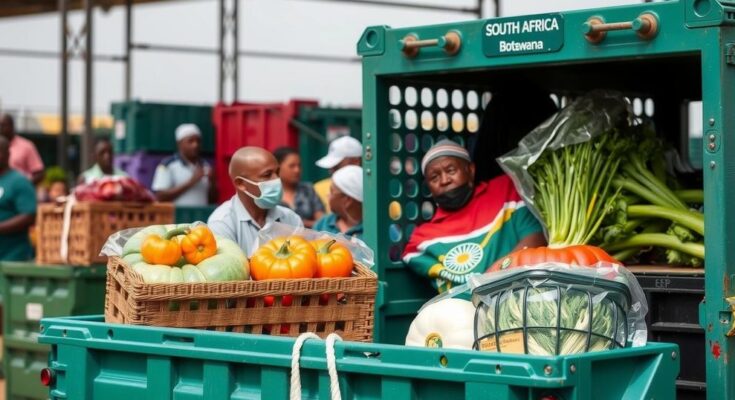Botswana’s new government has lifted the import ban on South African vegetables in two phases, aiming to enhance food security and restore trade relations. The first phase has commenced, allowing certain vegetables, while the second phase, starting in April, will permit the import of potatoes, onions, and other popular vegetables.
The newly elected government of Botswana has lifted the ban on vegetable imports from South Africa, implementing the change in two phases. The first phase has already begun and allows for the importation of various vegetables, including turmeric, eggplant, and pumpkin. The second phase, commencing in April, will facilitate the import of additional vegetables such as onions, sweet peppers, and potatoes. This decision aims to enhance food security and restore trade relations between the two countries, which were strained by previous import restrictions.
Earlier this year, Botswana and Namibia imposed lengthy bans on the importation of vegetables and citrus products from South Africa, predominantly to safeguard local agricultural producers and promote food self-sufficiency. However, this protectionist measure led to significant economic consequences, such as diminished South African export earnings and increased food insecurity in Botswana. The new administration under President Duma Boko recognizes that lifting these bans is vital for regional economic integration and better food supply management.
In conclusion, the new government of Botswana’s decision to lift the bans on vegetable imports from South Africa symbolizes a shift towards enhancing regional trade and food security. The phased approach not only benefits the agricultural sectors of both nations but also aligns with broader African trade aspirations, promoting a more interconnected market. Moving forward, it is crucial for member nations to adopt open trade practices to foster economic growth and resilience.
Original Source: www.sowetanlive.co.za




